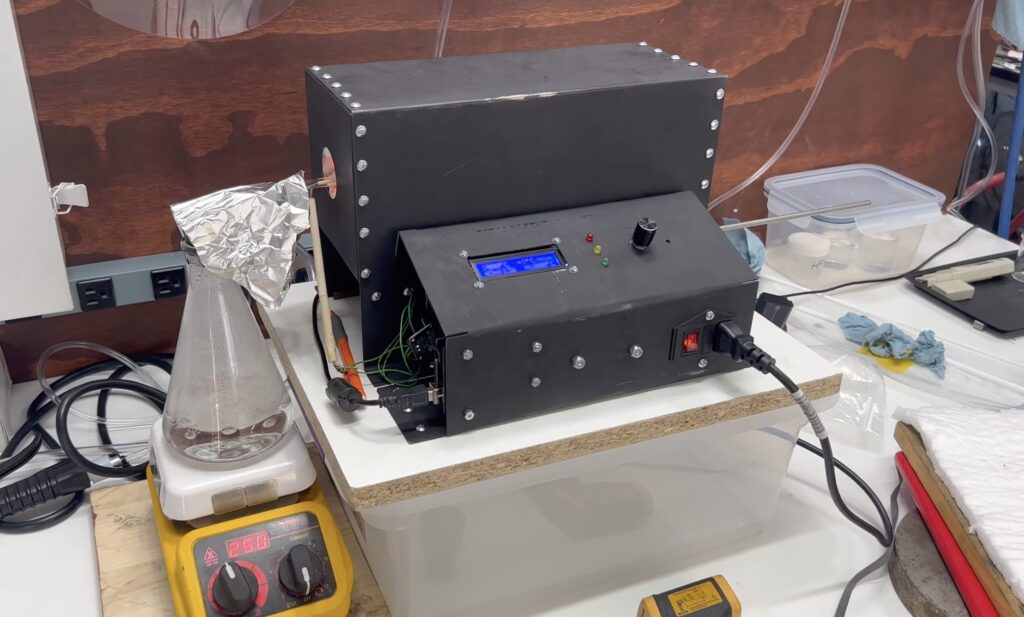A DIY tube furnace for creating ICs

Modern integrated circuit (IC) chips can have transistors as small as two nanometers, which is only about 10 silicon atoms laid end-to-end. At that scale, fabrication looks more like chemistry than any kind of physical manipulation — a machinist isn’t carving tiny transistors into silicon wafers. For many types semiconductors, the fabrication process requires a very powerful furnace. If you’re interested in creating your own ICs, then YouTuber ProjectsInFlight has a video explaining how to build your own furnace.
This is a design for a tube furnace that can reach 1200°C, similar to the kind that labs buy for many thousands of dollars. Producing that much heat in a controllable manner is not a trivial task and this is much more complicated than constructing a furnace for something like aluminum casting. The heating element is a coil of nichrome wire, which wraps around a quartz glass tube that can withstand the heat. A ridiculous amount of insulation surrounds the tube and wire to contain the heat.
Nichrome wire heats up through resistance when a current passes through, so you could just connect it to a power source. But that wouldn’t be controllable, so ProjectsInFlight created a control board based on an Arduino UNO Rev3 board. Like a 3D printer controller handling hot end temperature through proportional–integral–derivative (PID), this uses a closed-feedback PID loop to modulate power to the nichrome wire in response to readings from a thermocouple. The control interface has a dial for setting the target temperature and a 16×2 character LCD to show the current temperature detected by the thermocouple. The Arduino uses a solid-state relay (SSR) to modulate the power going through the nichrome wire.
A simple sheet metal enclosure houses the tube and, in a separate area, the control electronics. The furnace seems to be capable of safely reaching the desired temperature, so ProjectsInFlight can now use it for semiconductor experiments.